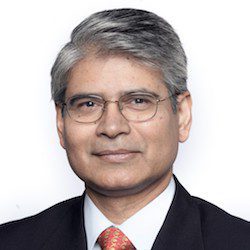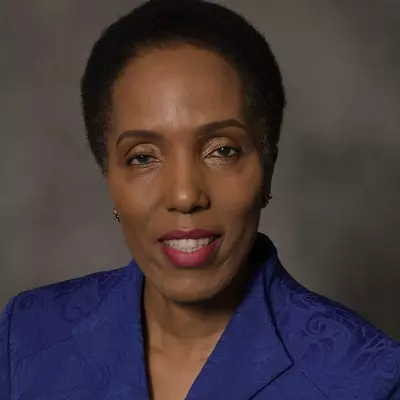The Cybersecurity Diplomacy course equips professionals with the knowledge and skills they need to act effectively in cybersecurity diplomacy. This online course analyses how the abuse of technology impacts geopolitical security, social and economic development, and cyber processes and negotiations. The course is taught by academics, technology experts, and seasoned diplomats.
Notice how cybersecurity news has moved from ‘lifestyle’ and ‘tech’ sections to ‘politics’, and even ‘breaking news’?
The increasingly frequent and high-impact cyber breaches, hacks, and attacks are influencing global political and economic relations, and pushing states to the negotiating table. From the UN General Assembly and Security Council, to the G7, G20, the WTO, and various regional organisations like the AUC, OSCE, OAS and ASEAN, states are forced to find ways to secure cyberspace. Cyber(in)security is impacting international peace, sustainable development, digital cooperation, human rights and privacy, as well as the global digital business environment, and stakes are getting higher for everyone: ministers, diplomats, business executives, civil society leaders, tech gurus, and top researchers.
All this confronts us with a number of interesting and crucial challenges, that we cover in this cybersecurity training:
- Can international diplomacy, together with regional and national policies, address technology-related threats in current geopolitical contexts?
- How can diplomats, businesses and civil society leaders promote collaboration over confrontation?
- How can we ensure that agreements on secure behaviour in cyberspace can preserve the internet’s potential for universal access, economic and social development, and individual security, rights, and freedoms?
- How can YOU prepare yourself and your institution to take an active part in these processes?
Interested in becoming actively involved in cybersecurity negotiations and processes that aim to make our global cyberspace a safer place?
This 6-week online course on Cybersecurity Diplomacydebates current critical topics, such as those addressed in the final report of the UN Cyber OEWG, through group readings, fireside chats with policy experts, and other interactive learning techniques.
With Diplo’s well-recognised, engaging, and interactive learning methodology, this cybersecurity training provides a space for exchanging experiences and views within s select group of professionals from around the world, as well as with lecturers who are among the top professionals and senior diplomats active in cybersecurity.
The Cybersecurity Diplomacy course complements our longer and more intensive academic Cybersecurity course, which provides a much broader overview of cybersecurity policy, including combating cybercrime and terrorism, protecting critical infrastructure, national policies and international cooperation, and the interplay between cybersecurity, economic development and human rights.
To learn more about the two main UN cybersecurity processes (GGE and OEWG), visit our Digital Watch observatory.
Reviews
Text – Steven Sim Kok Leong

The course was excellent and offered a springboard for CISOs and interested parties to pay it forward back to the community for a greater cause. The format was also refreshing and harnessed the collective wisdom of course instructors and students to cross-pollinate ideas and views to unravel potential blind spots, polish insights and create eureka moments. I would definitely recommend this course to anyone who is keen to make a difference in the global cybersecurity ecosystem.
– Mr Steven Sim Kok Leong, Chair, Executive Committee, OT-ISAC & CISO, Singapore
Text – Pauline Wamuyu Kimotho
 The content, the people, and the methodology of the course are exceptional. The course considers participants’ diverse training and expertise and encourages sharing views, enriching the learning process by lecturers who are seasoned experts in various fields. The learning tool is easy to use and interactive. I highly recommend the course to anyone looking to learn about cybersecurity and diplomacy and have fun at it.
The content, the people, and the methodology of the course are exceptional. The course considers participants’ diverse training and expertise and encourages sharing views, enriching the learning process by lecturers who are seasoned experts in various fields. The learning tool is easy to use and interactive. I highly recommend the course to anyone looking to learn about cybersecurity and diplomacy and have fun at it.
– Ms Pauline Wamuyu Kimotho, Corporation Secretary/ AG Director Legal; Information and Communications Technology Authority, Kenya
Text – Jessica Paola Orellana Curillo
 The course has been a great forum for discussing relevant topics with people of different nationalities, roles, and experiences from around the world. In addition, it has been an excellent opportunity to strengthen my knowledge concerning the application of existing international law to cyberspace, norms of responsible state behaviour, confidence-building measures, and capacity development. Understanding the importance of negotiation on these issues in the multilateral arena will be helpful in my job.
The course has been a great forum for discussing relevant topics with people of different nationalities, roles, and experiences from around the world. In addition, it has been an excellent opportunity to strengthen my knowledge concerning the application of existing international law to cyberspace, norms of responsible state behaviour, confidence-building measures, and capacity development. Understanding the importance of negotiation on these issues in the multilateral arena will be helpful in my job.
– Ms Jessica Paola Orellana Curillo, Counsellor, Ministry of Foreign Affairs, Ecuador
Text – Bennette Thomas
 This course was not only very enlightening and the best online programme that I have ever taken, but it has assisted me with some very useful knowledge and insights into the intricacies of cyberspace. I was particularly taken aback by the innovative ways that cyberspace has grown with new terminologies and acronyms such as ‘the acquis’, the GGE, the OEWG, lethal autonomous weapon systems, and the use of AI in cyberwarfare.
This course was not only very enlightening and the best online programme that I have ever taken, but it has assisted me with some very useful knowledge and insights into the intricacies of cyberspace. I was particularly taken aback by the innovative ways that cyberspace has grown with new terminologies and acronyms such as ‘the acquis’, the GGE, the OEWG, lethal autonomous weapon systems, and the use of AI in cyberwarfare.
– Mr Bennette Thomas, Director, Telecommunications & Technology, Ministry of Economic Planning, Sustainable Development, Investment, Resilience, Telecommunications & Broadcasting, Dominica
Text – Jennita Appanah Appayya
 Cybersecurity diplomacy is a new area for me and the course acted as a foundation for helping me understand the topic. I liked the most its teaching methodology, which allowed participants to learn at their own pace and promoted a productive self-reflection. It was great to work with the course lecturers, ambassadors, and participants, as they all had unique contributions to make and I learned a lot from them.
Cybersecurity diplomacy is a new area for me and the course acted as a foundation for helping me understand the topic. I liked the most its teaching methodology, which allowed participants to learn at their own pace and promoted a productive self-reflection. It was great to work with the course lecturers, ambassadors, and participants, as they all had unique contributions to make and I learned a lot from them.
– Ms Jennita Appanah Appayya, Information Security Specialist, CERT, Mauritius
Text – Julian Berry
 The entire course was an eye-opener for me because I had knowledge about what cybersecurity was, but never in such depth.
The entire course was an eye-opener for me because I had knowledge about what cybersecurity was, but never in such depth.
– Mr Julian Berry, Cyber Security Analyst, Department of Information Technology, Ministry of Health, ICT, Entertainment, Entrepreneurship and Talent Development, St Kitts and Nevis
Text – Juliana Crema
 I found the course’s format and structure to be very useful in covering many complicated topics in a clear and concise way. Thanks in part to the carefully selected materials and extremely knowledgeable expert discussions, the course helped me to not only consolidate my knowledge on topics such as international law and cyberspace, but it also encouraged me to take this knowledge and to apply it in more concrete ways. As a civil society professional, I highly recommend this course to others in the field who are interested in learning more about cybersecurity diplomacy.
I found the course’s format and structure to be very useful in covering many complicated topics in a clear and concise way. Thanks in part to the carefully selected materials and extremely knowledgeable expert discussions, the course helped me to not only consolidate my knowledge on topics such as international law and cyberspace, but it also encouraged me to take this knowledge and to apply it in more concrete ways. As a civil society professional, I highly recommend this course to others in the field who are interested in learning more about cybersecurity diplomacy.
– Ms Juliana Crema, Research Associate, CyberPeace Institute, Switzerland
Text – Phannarith Ou
 I cannot find the words to describe how useful this course was for a technologist like me who wants to enter the diplomatic world. The course is tailor-made, insightful, and a practical, up-to-date overview of the developments in cyber diplomacy. I really enjoyed the Process and Diplomacy modules which not only highlighted discussion outcomes, but the journey of a multilateral approach to cyber negotiations between states and related stakeholders. More importantly, the course made me feel more confident to take part in any cyber engagement within regional and international fora.
I cannot find the words to describe how useful this course was for a technologist like me who wants to enter the diplomatic world. The course is tailor-made, insightful, and a practical, up-to-date overview of the developments in cyber diplomacy. I really enjoyed the Process and Diplomacy modules which not only highlighted discussion outcomes, but the journey of a multilateral approach to cyber negotiations between states and related stakeholders. More importantly, the course made me feel more confident to take part in any cyber engagement within regional and international fora.
– Mr Phannarith Ou, Professor, Cyber Issues, Royal University of Law and Economics; Director, ICT Security, Ministry of Post and Telecommunications (MPTC), Cambodia
Text – Moradeke Adelekan
 The discussion on the effects of a cyberattack on critical infrastructure was the highlight, particularly the disastrous impact of such an attack if it is not averted on time. I will utilise my newly acquired knowledge by sharing it with the relevant Nigerian cybersecurity stakeholders.
The discussion on the effects of a cyberattack on critical infrastructure was the highlight, particularly the disastrous impact of such an attack if it is not averted on time. I will utilise my newly acquired knowledge by sharing it with the relevant Nigerian cybersecurity stakeholders.
– Ms Moradeke Adelekan, Senior Counsellor, International Organisations Department, Ministry of Foreign Affairs, Nigeria

 The content, the people, and the methodology of the course are exceptional. The course considers participants’ diverse training and expertise and encourages sharing views, enriching the learning process by lecturers who are seasoned experts in various fields. The learning tool is easy to use and interactive. I highly recommend the course to anyone looking to learn about cybersecurity and diplomacy and have fun at it.
The content, the people, and the methodology of the course are exceptional. The course considers participants’ diverse training and expertise and encourages sharing views, enriching the learning process by lecturers who are seasoned experts in various fields. The learning tool is easy to use and interactive. I highly recommend the course to anyone looking to learn about cybersecurity and diplomacy and have fun at it. The course has been a great forum for discussing relevant topics with people of different nationalities, roles, and experiences from around the world. In addition, it has been an excellent opportunity to strengthen my knowledge concerning the application of existing international law to cyberspace, norms of responsible state behaviour, confidence-building measures, and capacity development. Understanding the importance of negotiation on these issues in the multilateral arena will be helpful in my job.
The course has been a great forum for discussing relevant topics with people of different nationalities, roles, and experiences from around the world. In addition, it has been an excellent opportunity to strengthen my knowledge concerning the application of existing international law to cyberspace, norms of responsible state behaviour, confidence-building measures, and capacity development. Understanding the importance of negotiation on these issues in the multilateral arena will be helpful in my job. This course was not only very enlightening and the best online programme that I have ever taken, but it has assisted me with some very useful knowledge and insights into the intricacies of cyberspace. I was particularly taken aback by the innovative ways that cyberspace has grown with new terminologies and acronyms such as ‘the acquis’, the GGE, the OEWG, lethal autonomous weapon systems, and the use of AI in cyberwarfare.
This course was not only very enlightening and the best online programme that I have ever taken, but it has assisted me with some very useful knowledge and insights into the intricacies of cyberspace. I was particularly taken aback by the innovative ways that cyberspace has grown with new terminologies and acronyms such as ‘the acquis’, the GGE, the OEWG, lethal autonomous weapon systems, and the use of AI in cyberwarfare. Cybersecurity diplomacy is a new area for me and the course acted as a foundation for helping me understand the topic. I liked the most its teaching methodology, which allowed participants to learn at their own pace and promoted a productive self-reflection. It was great to work with the course lecturers, ambassadors, and participants, as they all had unique contributions to make and I learned a lot from them.
Cybersecurity diplomacy is a new area for me and the course acted as a foundation for helping me understand the topic. I liked the most its teaching methodology, which allowed participants to learn at their own pace and promoted a productive self-reflection. It was great to work with the course lecturers, ambassadors, and participants, as they all had unique contributions to make and I learned a lot from them. The entire course was an eye-opener for me because I had knowledge about what cybersecurity was, but never in such depth.
The entire course was an eye-opener for me because I had knowledge about what cybersecurity was, but never in such depth.  I found the course’s format and structure to be very useful in covering many complicated topics in a clear and concise way. Thanks in part to the carefully selected materials and extremely knowledgeable expert discussions, the course helped me to not only consolidate my knowledge on topics such as international law and cyberspace, but it also encouraged me to take this knowledge and to apply it in more concrete ways. As a civil society professional, I highly recommend this course to others in the field who are interested in learning more about cybersecurity diplomacy.
I found the course’s format and structure to be very useful in covering many complicated topics in a clear and concise way. Thanks in part to the carefully selected materials and extremely knowledgeable expert discussions, the course helped me to not only consolidate my knowledge on topics such as international law and cyberspace, but it also encouraged me to take this knowledge and to apply it in more concrete ways. As a civil society professional, I highly recommend this course to others in the field who are interested in learning more about cybersecurity diplomacy. I cannot find the words to describe how useful this course was for a technologist like me who wants to enter the diplomatic world. The course is tailor-made, insightful, and a practical, up-to-date overview of the developments in cyber diplomacy. I really enjoyed the Process and Diplomacy modules which not only highlighted discussion outcomes, but the journey of a multilateral approach to cyber negotiations between states and related stakeholders. More importantly, the course made me feel more confident to take part in any cyber engagement within regional and international fora.
I cannot find the words to describe how useful this course was for a technologist like me who wants to enter the diplomatic world. The course is tailor-made, insightful, and a practical, up-to-date overview of the developments in cyber diplomacy. I really enjoyed the Process and Diplomacy modules which not only highlighted discussion outcomes, but the journey of a multilateral approach to cyber negotiations between states and related stakeholders. More importantly, the course made me feel more confident to take part in any cyber engagement within regional and international fora.  The discussion on the effects of a cyberattack on critical infrastructure was the highlight, particularly the disastrous impact of such an attack if it is not averted on time. I will utilise my newly acquired knowledge by sharing it with the relevant Nigerian cybersecurity stakeholders.
The discussion on the effects of a cyberattack on critical infrastructure was the highlight, particularly the disastrous impact of such an attack if it is not averted on time. I will utilise my newly acquired knowledge by sharing it with the relevant Nigerian cybersecurity stakeholders.










